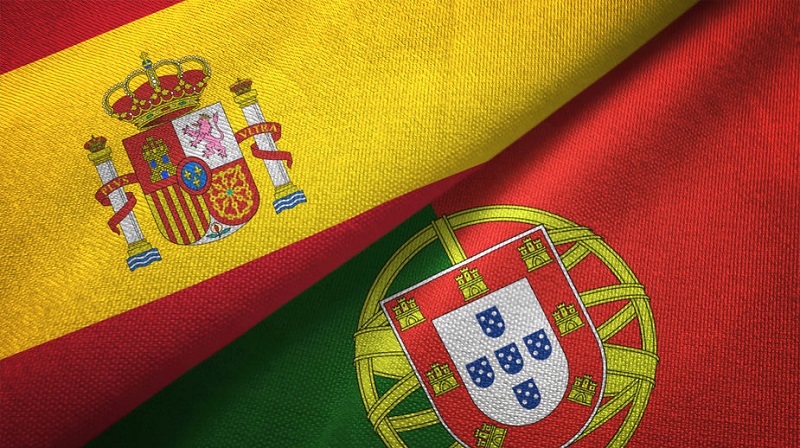
Spanish or Portuguese Online Classes? How do They Compare?
By: Izabella Klein
Spanish and Portuguese are very similar in many ways. This could be an advantage if someone already speaks Spanish and decides to take Portuguese online classes. They are both neo-Latin languages with an enormous amount of words that are alike and plenty of identical grammar rules. Some words are exactly the same, such as: ‘comer’ (eat), ‘beber’ (drink), and ‘dormir’ (Sleep).
Some words have both in Spanish and Portuguese the same prefix, but a different suffix (i.e. the ending of the word is somehow different). You might have a different prefix, but same suffix (i.e. the beginning of the word is different), although the ending is the same. For example, ‘same conditions’ translated to Portuguese is ‘condições iguais’ and translated to Spanish is ‘condiciones iguales’. Notice in both words in both languages you have the same prefix ‘condi-’ and ‘igua-’ but different suffix. So, if you speak one of these languages and wish to learn the other, most of the time by assumption you should be able to understand the new language.
This is a good thing, but be careful, this could be tricky sometimes because some words in the other language have the opposite meaning, or simply a different meaning. These false cognates can cause misunderstanding. For instance, a funny situation is the words for surname and nickname. Surname in Portuguese is ‘sobrenome’ but in Spanish it is ‘apellido’. And the word nickname in Portuguese is ‘apelido’ but in Spanish it is ‘sobrenombre’. Pay attention not to mix them up. Summarizing:
| English | Portuguese | Spanish |
| Surname | Sobrenome | Apellido |
| Nickname | Apelido | Sobrenombre |

Portuguese Online Classes are Also Advantageous for English Speakers
As you can see in this case, surname in Portuguese is more similar to English than to Spanish, and this is because English also comes from Latin, so you might also find some similarities with the English language. Another good example is the words ‘esquisito’ and ‘estranho’ in Portuguese they both mean strange, weird, odd; but in Spanish ´exquisito’ means delicious and ‘te extraño’ means I miss you. In other words, careful not to mix both Portuguese with Spanish, otherwise you’ll end up confusing people by speaking what we call ‘Portunhol’.
Sometimes a word might have in Portuguese a completely different meaning it has in Spanish. Although written in the same way, the word ‘embarasada’ for example, in Portuguese means when someone is embarrassed for some reason, but on the other hand in Spanish, it means someone is pregnant. As you can see, once again this word is much more similar to English than at all to Spanish.
It’s incredible how Portuguese native speakers find it much easier to understand someone speaking Spanish, than the other way around. This happens because of the pronunciations of some words. Most words pronounced in Spanish are familiar to the ears of Portuguese speakers, but not all pronunciations in Portuguese are familiar to Spanish speakers. For example, the letter V is barely used in Spanish and when used it sounds exactly like the letter B in their language. So for them V and B sound exactly the same, while in Portuguese, B and V are pronounced in different ways. As their ears are not prepared, they can’t notice any difference between them. For instance, the word ‘word’ translated to Portuguese is ‘palavra’, but translated to Spanish is ‘palabra’.
Even if you already speak Spanish, you’re one step ahead to learning Portuguese and vice-versa, as they somehow complete one another, it also makes it easier for you to understand the origin of neo-Latin languages, and it’s scientifically proven that the more languages you learn, the smarter you get. Let your child learn languages online at LanguageBird and take full advantage of our knowledge and resources!




